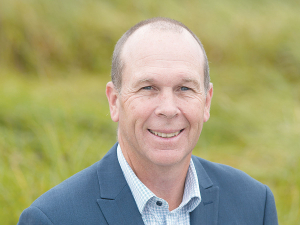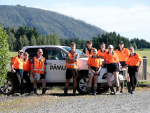State-owned farmer Pamu (brand name for Landcorp) recorded a net loss after tax of $26 million for year ending June 30, 2024, compared to a $9m loss the prior year.
The country’s largest pastoral farmer, Pamu says softening sheep and cattle prices, high interest costs, and the decrease in valuation of farms and buildings impacted profitability.
The SOE notes that last year’s results were boosted by a $20 million gain on milk futures, whereas this year, there was a $1 million loss. This was a significant contributing factor to Pamu’s higher net loss.
During the year Pamu reviewed the value of its farm portfolio, and this resulted in a reduction of $141 million in property values, of which $4 million was recorded within the net loss after tax, compared to nil in 2023.
The fair value loss of $9 million on livestock value (2023 $22 million loss) largely reflected a continued fall in values for sheep and the fair value of forestry assets which declined by $6 million. Net finance expenses were $26 million ($3 million up on 2023) reflecting higher interest costs this year.
Pamu’s net operating profit (NOP) dropped to $20 million, from $33 million in the prior year.
Pamu chief executive Mark Leslie says their commitment to delivering value to New Zealand remains resolute.
“Ours is not just an opportunity for Pamu, but for New Zealand Inc. Pamu has the potential to play a crucial role in doubling the value of New Zealand exports over the next decade.
“Pamu is focused first on commercial sustainability. Despite a stronger on-farm performance this year, like other Kiwi farmers, we have had to contend with softening sheep and cattle prices, high interest costs, and the decrease in valuation of farms and buildings, all of which impact profitability.”
Over the year Pamu acquired a controlling interest in FarmIQ Limited, raising its equity ownership from 56% to 69%. FarmIQ’s results are now consolidated with Pamu results.
“Farmers and growers can benefit hugely from digital technologies and from data availability for better decision-making on-farm, regulatory compliance with the likes of greenhouse gas reporting, and providing information consumers are seeking on the food they consume. Our strategic investment in FarmIQ is about enhancing our principal objective of operating a successful and profitable business,” says Leslie.
Pamu productivity is up on last year in the below key areas:
- Dairy six-week in-calf rate up 3% from 65% in FY2023 to 68% in FY2024
- Total milk production up 3.6% 13.7 m kgMS in FY2023 to 14.2 m kgMS in FY2024
- Lambing percentage up 1.5%, 131% in FY2023 to 132.4% in FY2024
- Total kg product (red meat) up 4% 17.2m kg in FY2023 to 17.9m kg in FY2024
- Operating expenses were down 2% from $232 million in FY2023 to $227 million in FY2024 despite inflation



















